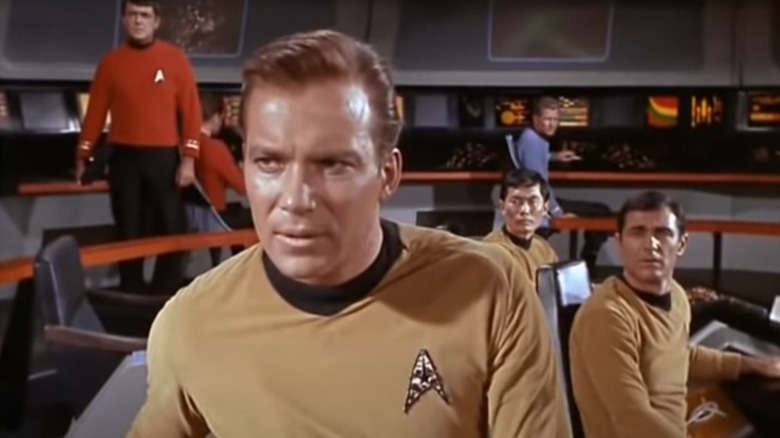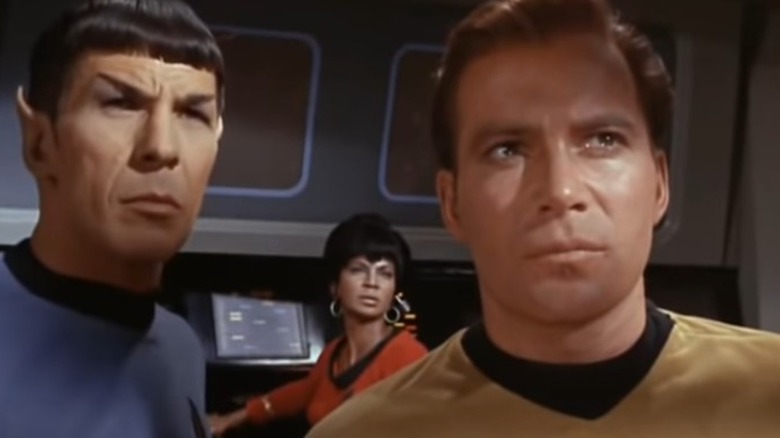William Shatner Thought That Timing Was The Reason For Star Trek's Cancelation
As Captain James T. Kirk on the original, iconic "Star Trek" TV series, William Shatner took the helm of the Federation Starship USS Enterprise to pilot the show through three seasons on NBC. Featuring crew mates including Mister Spock (Leonard Nimoy), Dr. Leonard "Bones" McCoy (DeForest Kelley), Lt. Nyota Uhura (Nichelle Nichols), and others, the series launched viewers into an unexplored galaxy of alien races, off-world cultures, and unearthly creatures.
Powered by storylines that balanced its modest special effects and unabashed affinity for futuristic sci-fi whiz-bang-ery with progressive cultural commentary, the show was unafraid to push racial and other societal boundaries of its era. Eventually constituting a richly expansive entertainment universe, the original "Star Trek" would spawn eleven TV series, 13 feature films, three companion series, and countless novels, comic books, role-playing and video games, podcasts, and related "Trekkie" content and collectibles.
While it would eventually go on to generate one of the most influential and profitable science fiction franchises ever created, the original "Star Trek" TV series was summarily canceled after its brief three-season run — and William Shatner felt he knew why.
William Shatner attributes Star Trek's cancelation to its eventual late-evening time slot
First pitched by creator Gene Roddenberry in the early '60s as a sort of 'Wagon-Train-to-the-Stars,' a pilot episode of "Star Trek" titled "The Cage" was shot in 1964. The show landed on NBC's broadcast lineup when a second pilot, "Where No Man Has Gone Before," aired in April of 1966. Despite decent ratings at the start of its run, the show's numbers fell noticeably, and it was finally axed in 1969.
Shatner discussed the fate of "Star Trek" with interviewer Bill Boggs while promoting the arrival of "Star Trek: The Motion Picture" in theaters in 1979. Asked what it was that led to the show being canceled, Shatner noted that the series underwent constant schedule changes, saying, "If I recall correctly ... it was moved around in the three years that we were on [and its] final time slot was Friday at ten o'clock in the evening." Boggs joked that Shatner himself probably wasn't at home at that time of night, to which the actor replied, "Exactly. It's a graveyard slot, isn't it? So I think that our demise was hastened by our [time] slotting."
As Shatner told USA TODAY in 2021, the end of "Star Trek" represented "a low point in my life." But the actor added that the disappointment was temporary, saying, "As life does, sometimes, what is down comes up."

